Graham Reid | | 7 min read
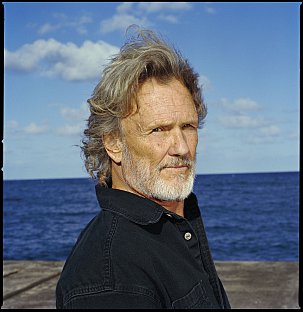
Before he was 40 Kris Kristofferson -- now in his 70s -- had lived enough to fill the pages of at least a couple of wild novels. And the real craziness was still to come. In the 80s Kristofferson greeted a journalist with, “Let’s have some dope”. The interviewer reported she remained high just by breathing his exhaust.
Born in Texas, he was a smart kid and won a Rhodes Scholarship. He got his masters degree in literature at Oxford University in 1960 -- even today he quotes William Blake -- but the self-described army-brat came from a family with a long history of military service. So he followed in father’s bootsteps and became an army captain serving in Germany. He taught and flew helicopters.
Then, as the conflict in Vietnam deepened, he had his doubts about the war, declined a job teaching at the prestigious West Point military academy, and quit the army in 65, exchanging the uniform for jeans and a t-shirt.
“Beautiful, brilliant and bound for glory” (as he is described in Nashville Babylon), he arrived in Nashville determined to be a songwriter.
He got a job as a janitor at Columbia Records -- he also flew men and equipment to oil rigs in the Gulf of Mexico -- and hassled Johnny Cash with demo tapes of his songs. Cash tells of Kristofferson arriving uninvited at his home by chopper to deliver some new songs.
His song writing career took off as his marriage was crashing when Me and Bobby McGee was covered by Roger Miller, and then Janis Joplin. The line “freedom’s just another word for nothing left to lose,” became a classic.
Cash became Kristofferson’s earliest champion: he covered Sunday Morning Coming Down in 1970, the same year Kristofferson appeared at the Isle of Wight Festival. Suddenly Kristofferson was everywhere.
“I did my first gig with a band in June 1970 at the Troubadour in LA,” he says from Hawaii where he has lived for 15 years, “and the show went over better than expected. People like [director] Sam Peckinpah and Barbra Streisand would come by, and next thing I was getting movie offers.
“It was like jumping into a pool with a shark. The best thing is I survived, although it was a scramble there for a while,” he laughs hoarsely.
He starred in Peckinpah’s Pat Garrett and Billy the Kid with Bob Dylan -- and success started to kill him one drink at a time.
Kristofferson was spinning out, but his biggest fame and greatest notoriety was still to come. And he wasn’t yet 40.
Kristofferson is, among other things, a survivor. He is one of country music’s Mt Rushmore faces alongside Willie Nelson, Waylon Jennings, and the late Johnny Cash, all of whom he worked with in the 80s country supergroup the Highwaymen. 
Last year, and it was long overdue, he was inducted into the Country Hall of Fame at the Grand Ole Opry House in Nashville, an institution which initially rejected him for his outlaw image and independent attitude.
“I’ve recently been shown a lot of respect from the country music people. You know, there have been times they‘ve acted like they were embarrassed by me.”
And he laughs again at the understatement.
The country music establishment rejected the outsider stance of the young Kristofferson and recoiled when he made A Star is Born with Streisand in 76. Then there was the notorious photoshoot for Playboy to promote the film The Sailor Who Fell From Grace With The Sea. 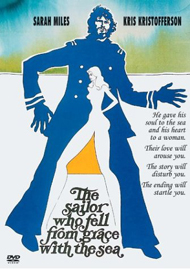
The sexually explicit photographs with co-star Sarah Miles were the nadir of his career: he was so out of it he could barely remember what happened. His career remained tumultuous throughout the 80s but today he laughs off the bad old years.
“What you learn is you can’t take yourself too seriously. This can be a tough business and you can embarrass yourself in many ways. But I feel like I’ve had a creative life.
“I liked A Star Is Born better than a lot of the critics. I wish I could have done the music for it but my publisher wouldn’t split with Barbra and her producer so I had to do somebody else’s songs.”
In recent decades the turmoil around Kristofferson abated and his status as a gifted songwriter and survivor has allowed the politically articulate side of the singer to emerge. An advocate of human rights and vehemently opposed to his country’s involvement in Iraq, he argues from the perspective of a former military man whose patriotism cannot be disputed. The re-election of George W Bush tells him “there are a whole lot of people who don’t read enough news, or know what’s going on in the world“.
“I find it hard to believe the same people that were so outraged by Pearl Harbour can feel it’s all right to make pre-emptive war on another country that hasn’t even attacked us. Now that has become accepted behaviour.
“I can’t imagine the America I grew up believing in behaving like that.”
Kristofferson’s political stance has cost him (“It’s made me almost unmarketable. Again.”) but he believes his educational and artistic opportunities oblige him to speak out.
“I had information that wasn’t necessarily available to somebody who was working 9 to 5 and who couldn’t get out and see things. I’ve been all over the world and been able to look at it from many different perspectives.
“When I first left the country for school in England I remember getting in all kinds of scrapes in Europe about the United States. I thought they were all mistaken.
“But the more information I got the more I realised there were things I wasn’t crazy about that my government was doing, and most is the disrespect for international law and treaties or organisations like the World Court and the United Nations.
“At this point in time we should be able to work things out diplomatically instead of militarily. As far as my country is concerned, it’s like [peace activist] Helen Caldicott said; there’s only one party in the US and it’s the war party, and it’s in charge of all three branches of the government, and the Supreme Court.
“So it’s up to people who have an audience or a means to express themselves to do it and make whatever difference they can. We don’t live alone in the world, we [in the United States] are going to pay for some of the abuses of power that are going on.”
Although Kristofferson -- father to eight children, including three adopted from Nicaragua -- has tamed his wild ways, he hasn’t curtailed his political activities although a triple by-pass heart operation five years ago has slowed him a little. This year however he will appear in three movies (including The Jacket alongside Oscar-winner Adrian Brody) and is touring again. He arrives here after concerts in Ireland and on his way to dates around Australia.
“The feedback I get is enough to make me feel I should go out, and I should be expressing myself in song. And if you hang around long enough people think you must be some kind of icon because they’ve heard of you.”
The recent passing of Johnny and June Carter Cash hit him hard. While the world lost music legends he lost friends. He performed the eulogy at Johnny’s funeral. 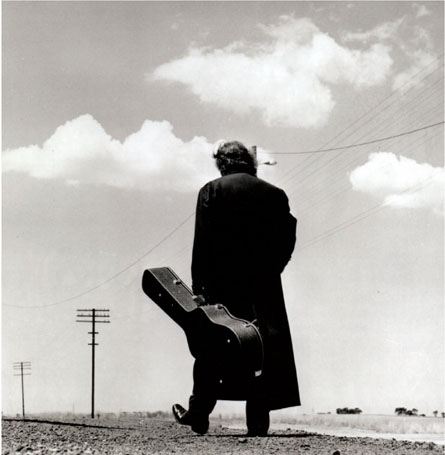
“One of the real blessings in my life is I ended up playing with people who were icons and my heroes. These were the people that inspired me to get into it.”
He is less certain about his own position in the pantheon of country legends and is aware of his limitations. Way back Cash said of him, “that boy’s a poet, but he sure can’t sing”.
“No I’m not the greatest musician in the world. But I can back what I’m doing.”
And the man whose songs have been covered by over 400 artists from Jerry Lee Lewis to Gladys Knight, acknowledges that, politics and all the rest of it aside, he is an entertainer.
“If I’m not,” he laughs, “it’s gonna be a long night, because I’m the only thing you got to look at.”
*****
Kris Kristofferson in concert: Civic Theatre, Auckland, New Zealand. August 2005
 This shouldn’t work: a self-described “old fart” who can’t sing and whose guitar playing is serviceable at best -- and frequently pretty lousy. Oh, and he fluffed the first song, had lost is voice at a show a few days before so was being cautious with the limited range he has, and a couple of times used the wrong harmonica.
This shouldn’t work: a self-described “old fart” who can’t sing and whose guitar playing is serviceable at best -- and frequently pretty lousy. Oh, and he fluffed the first song, had lost is voice at a show a few days before so was being cautious with the limited range he has, and a couple of times used the wrong harmonica.
Despite all that Kris Kristofferson pulled off a show that was at times magical, often moving, and if it was sometimes mawkishly sentimental it was so engrossing that the capacity audience at the Civic listened in silence to that wobbly, weak singing before erupting in sustained applause at the end of every song.
If charisma could be moulded into human form it would look like 70-year old Kristofferson: tall, dignified, leoline silver-grey hair, and a lived-in face. His shortcomings as a singer-guitarist are also overlooked because of the power of his songs.
His classic songs of four decades ago even then had a reflective quality -- Me and Bobby McGee, Sunday Morning Coming Down, For the Good Times -- which now, being delivered by a man who knows he is on limited time, have a pathos and humanity which feel all the more moving for the hard-won wisdom of the years.
After a gutsy and impressive set by Donald Reid (of the Feelers), Kristofferson took the stage with just two guitars, some harmonicas and little else other than a catalogue of songs which touched the political (They Killed Him, some anti-war sentiments) and the personal (the final sincere but sentimental songs about his love for his kids and the audience which gave him a career).
With self-effacing humour, references to Johnny Cash, Willie Nelson, Sam Peckinpah and Janis Joplin (which reminded you of the stature he has and the company he kept), and a folksy manner in which he spoke of his daddy, Kristofferson charmed and entertained with stories in song and won a standing ovation.
Remarkable, especially from an old guy who can’t really sing or is much cop at playing guitar.
This interview first appeared in the New Zealand Herald in August 2005. www.nzherald.co.nz

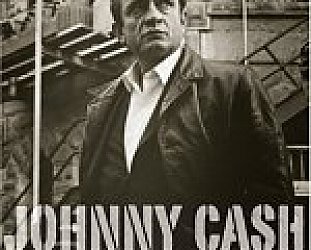
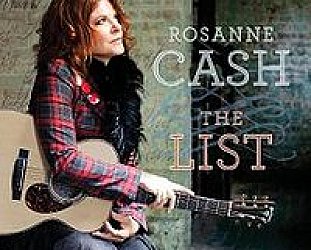
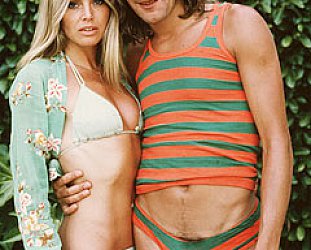
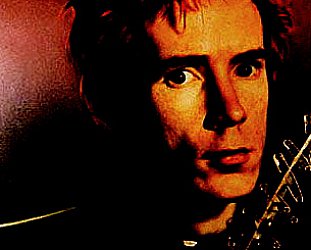


post a comment